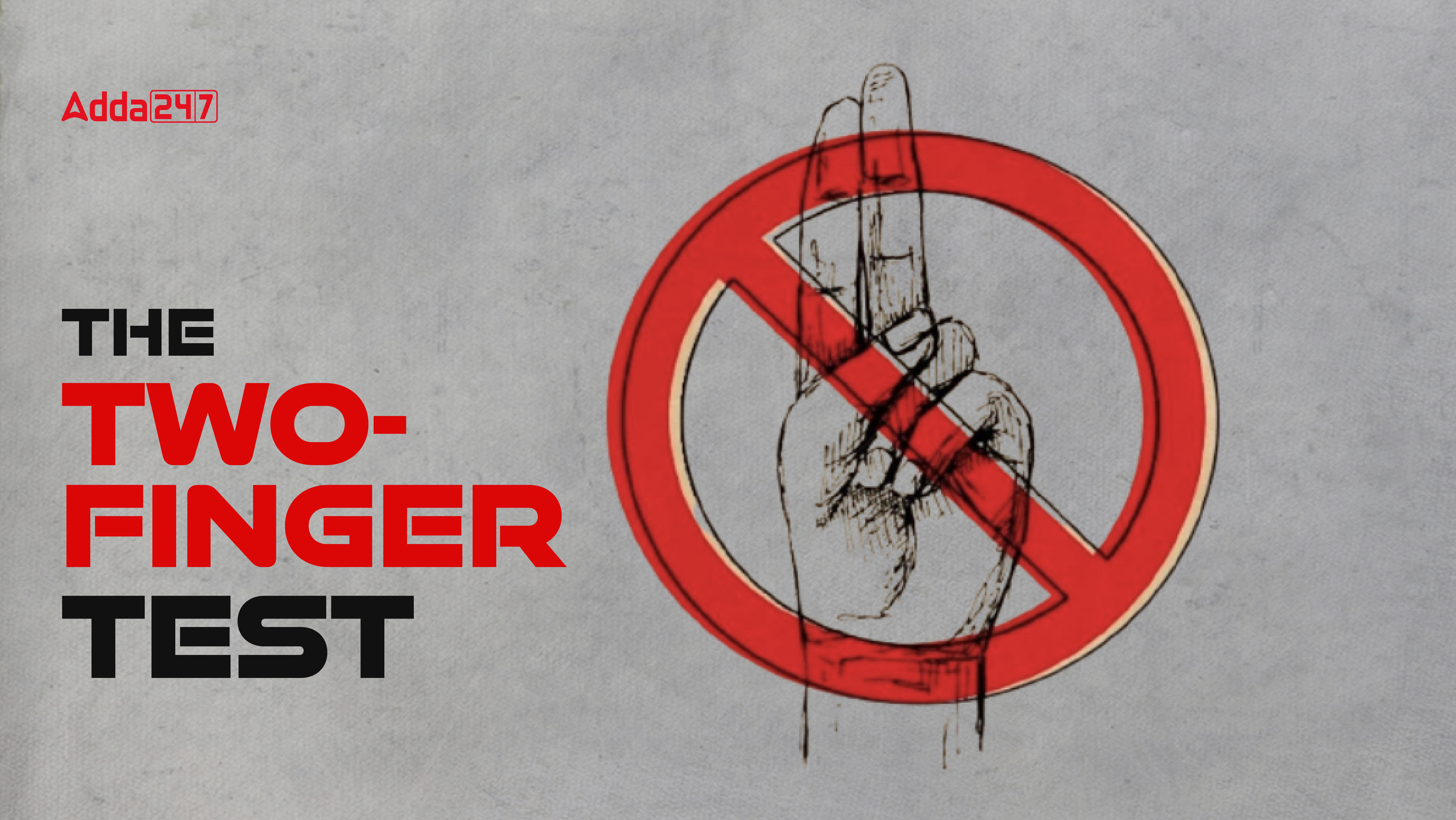Table of Contents
The “two-finger-test,” a controversial and archaic medical procedure used to assess the sexual history of rape survivors, has long been a point of contention in India. This practice, which involves inserting two fingers into the vagina to test its laxity, has been widely condemned for its lack of scientific basis, its invasion of privacy, and its potential to re-traumatize survivors of sexual assault. Despite its official ban by the Supreme Court of India and various health guidelines, the test continues to be practiced in some parts of the country, raising serious ethical and legal concerns.
What is the Two-Finger-Test?
The two-finger-test is a medical examination conducted by inserting two fingers into the vagina of a rape or sexual assault survivor. The aim is to determine whether the hymen is intact, assess the laxity of the vaginal muscles, and infer whether the woman is “habituated to sex.” This test was traditionally used to question the legitimacy of rape claims, suggesting that women who are sexually active could not be victims of rape, thus casting doubt on their testimonies.
Why is the Two-Finger-Test Inappropriate?
The two-finger-test is based on several flawed and patriarchal assumptions.
- First, it presupposes that a woman who is sexually active is less likely to have been raped, which is scientifically and morally incorrect. A woman’s sexual history is irrelevant in determining whether she has been sexually assaulted. Rape is a crime of violence and power, not sex, and can occur regardless of a person’s sexual history. The test also perpetuates victim-blaming, suggesting that survivors are responsible for the assault if they have been sexually active.
- Furthermore, the test is unscientific. The laxity of the vaginal muscles can be influenced by various factors, including childbirth, age, and physical activity, not just sexual activity. Therefore, using this test to make any conclusions about a woman’s sexual history or the occurrence of rape is medically invalid and ethically wrong.
Two-Finger-Test: Judicial Stance
In May 2013, the Supreme Court of India declared the two-finger-test unconstitutional, stating that it violates a woman’s right to privacy, dignity, and physical integrity. The Court emphasized that the test has no scientific basis and serves only to re-traumatize survivors. Following this, in 2014, the Ministry of Health and Family Welfare issued guidelines banning the use of the two-finger-test in the medico-legal examination of sexual assault survivors, asserting that the size of the vaginal introitus has no relevance in cases of sexual violence.
Despite these clear directives, the test continues to be used in some areas due to lack of awareness and proper enforcement of the guidelines. In 2022, the Supreme Court reiterated its stance, condemning the use of the test and directing State Governments to ensure its removal from medical curricula and practice.
Two-Finger-Test: Societal Impact
The persistence of the two-finger-test reflects deep-seated patriarchal attitudes within society and the criminal justice system. It underscores a broader issue of gender bias and the need for a more sensitive approach to handling sexual violence cases. The continued use of this test not only denies survivors justice but also deters many from coming forward to report crimes, fearing further humiliation and trauma.
Two-Finger-Test: Recommendations
To eradicate the use of the two-finger-test completely, several steps must be taken:
- Legal Enforcement: Penal provisions should be implemented against those conducting the test, ensuring accountability and deterring future occurrences.
- Awareness and Training: Conduct extensive awareness campaigns and workshops for medical professionals and police personnel to educate them about the implications of the test and the proper procedures for handling sexual assault cases.
- Psychological Support: Include psychologists in the process to provide emotional and psychological support to survivors, ensuring they are treated with dignity and respect throughout the legal process.
- Scientific Methods: Promote the use of DNA testing and other scientific methods for evidence collection, which are more accurate and do not violate the survivor’s dignity.
Conclusion
The two-finger-test is a regressive practice that has no place in a modern, just society. It is imperative that both legal and medical frameworks align to protect the dignity and rights of sexual assault survivors. By eliminating such unethical practices and adopting a more empathetic and scientifically sound approach, India can ensure that survivors receive the justice and support they deserve.
Sharing is caring!



 TSPSC Group 1 Question Paper 2024, Downl...
TSPSC Group 1 Question Paper 2024, Downl...
 TSPSC Group 1 Answer key 2024 Out, Downl...
TSPSC Group 1 Answer key 2024 Out, Downl...
 UPSC Prelims 2024 Question Paper, Downlo...
UPSC Prelims 2024 Question Paper, Downlo...




